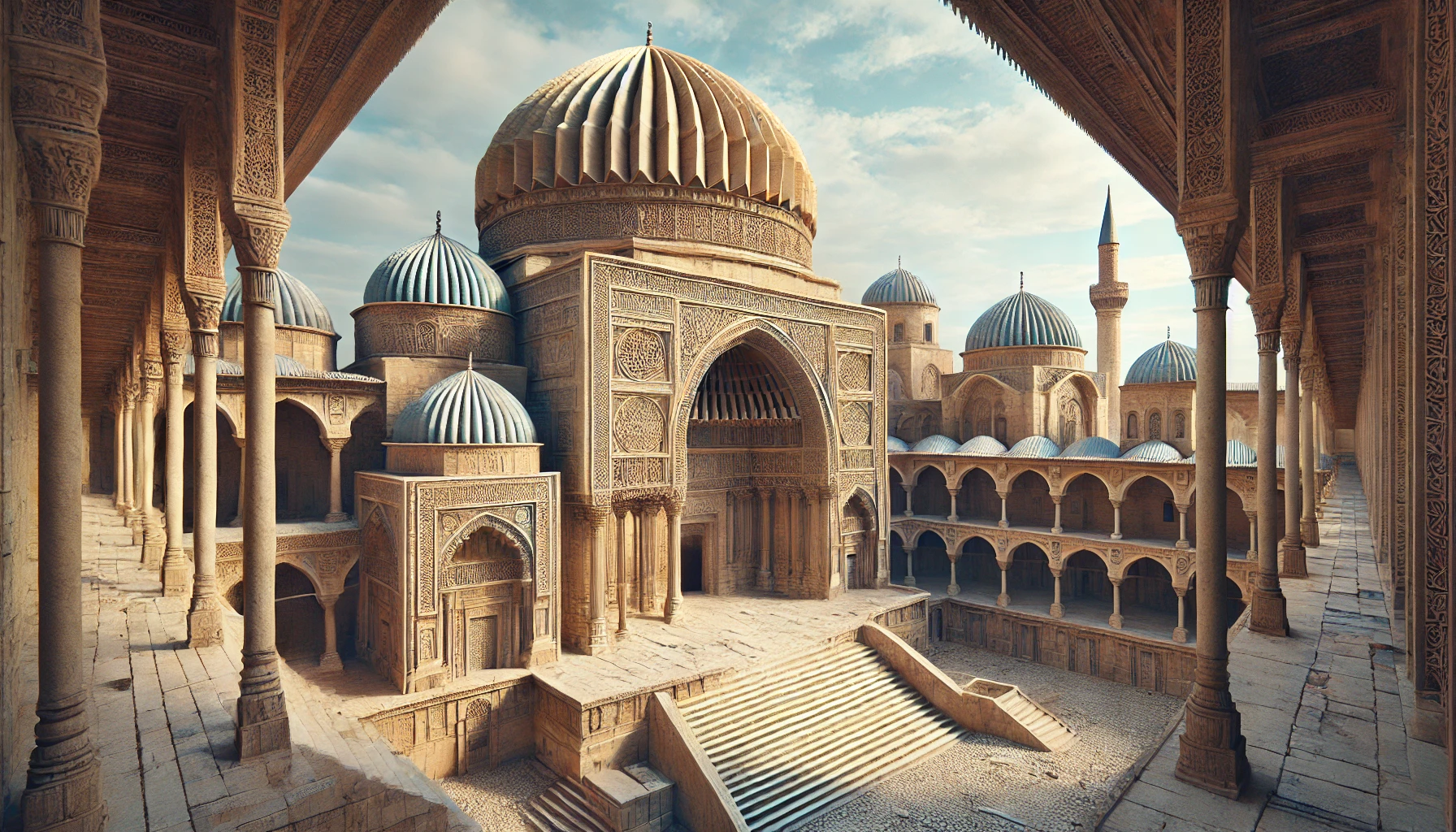The Great Mosque and Hospital of Divrigi
The Mosque Where Stones Were Dressed with Love: The Great Mosque and Hospital of Divrigi
On December 6, 1985, the Great Mosque and Hospital of Divrigi were inscribed on the UNESCO World Heritage List, becoming the first Turkish building to receive this honor. Built in the 13th century by Ahmed Shah and his wife, Melike Turan, of the Principality of Mengucek, this architectural masterpiece was designed by the architect Hurrem Shah of Ahlat in 1288. Renowned for its monumental architecture, hexagonal dome, and unique stone carvings, the Great Mosque and Hospital of Divrigi stand as a testament to the intricate artistry and engineering prowess of their time.
The Historical Significance of Divrigi’s Great Mosque and Hospital
The Great Mosque and Hospital of Divrigi hold a unique place in architectural history due to their distinct and elaborate stone carvings. The facade of the mosque is plain, yet its status as a unique masterpiece is evident in the stone decorations adorning its portals. The great portal of the Hospital, the northern portal of the Mosque, the western portal of the Mosque, and the portal of Shah’s dais are all adorned with intricate carvings that captivate the eye.
Unique Stone Carving Decorations
Art historians and architects agree that the three-dimensional, intricate geometric styles and flowing plant figures found in Divrigi’s Great Mosque and Hospital have no parallels. The portals appear to borrow elements from Baroque, Seljuk, and Gothic styles, yet they represent a distinct and unique style of their own. Each figure carved on the portals and walls is asymmetrical, with each square boasting thousands of unique stone-carved figures.
Northern Facade: The Wreath of Life
One of the most notable features is the wreath of life carved on the northern facade. This decoration depicts an imaginary plant world, showcasing the incredible creativity and imagination of the craftsmen. The uniqueness of each design element in the portals is a defining characteristic of this architectural marvel.
Architectural Features
In addition to the decorated portals, the bases, shafts, and capitals of the columns, as well as the inner surface of the dome, are all adorned with distinct and unique styles. These elements collectively contribute to the mosque’s reputation as a masterpiece of art and architecture.
The Hospital: A Masterpiece of Stone Carving
Situated next to the Great Mosque, the Hospital is itself a masterpiece of stone carving. This two-story building features a central courtyard surrounded by porticoes and was designed as a hospital where treatments included the soothing sounds of flowing water from the fountains. The Hospital shares the splendid unity of the Great Mosque, with each element reflecting the same level of intricate detail and craftsmanship.
Healing with Water
The Hospital’s design emphasizes the importance of water in healing practices during the period. The central courtyard’s fountains provided a calming ambiance, contributing to the overall therapeutic environment of the Hospital.
Visiting the Great Mosque and Hospital of Divrigi
This extraordinary stone masterpiece, shaped with love and precision, is waiting for visitors to explore its historical and architectural wonders. The Great Mosque and Hospital of Divrigi are not only significant for their artistic and architectural features but also for their historical importance in showcasing the ingenuity and creativity of medieval Anatolian craftsmen.
Conclusion
The Great Mosque and Hospital of Divrigi, with their unique stone carvings and architectural brilliance, stand as a testament to the rich cultural heritage of Turkey. Inscribed on the UNESCO World Heritage List for their cultural significance, these structures continue to captivate visitors with their intricate designs and historical importance. Whether you are an art enthusiast, a history buff, or simply a curious traveler, the Great Mosque and Hospital of Divrigi offer a fascinating glimpse into the artistic and architectural achievements of the 13th century.
Latest Update: May 22, 2015
Your Content Goes Here
A brief summary of the key points in this article.




